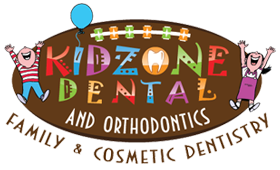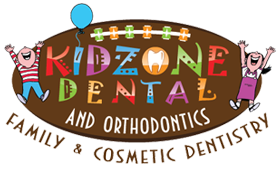Pediatric Dentistry in Missouri City
First Visit
AAPD and AAP recommend that dental care should start with conception. We educate expectant parents on early dental care and about the do’s and don’ts related to their child’s oral health.
Early Infant Oral Health
The American Dental Association (www.ada.org), the American Academy of Pediatrics (www.aap.org) and the American Academy of Pediatric Dentistry (www.aapd.org) in consensus recommend that your child’s first dental visit should be when the first tooth erupts or by 12 months of age.
This is called Infant Oral Health Exam. Pediatric Dentistry in Missouri City specializes in Infant Oral Health. Infants usually cry at this appointment, but being trained to handle these situations makes the visit relatively easy, unlike the visit to the pediatricians for vaccinations.
The visit primarily comprises of educating parents about optimum infant oral health care at home, checking the teeth and mouth in correlation with the age of the child and tooth eruption schedule, demonstrating to the parents the most effective way to brush the infants teeth and application of professional strength fluoride on erupted teeth.
According to Pediatric Dentistry in Missouri City If the child is beyond the age of infancy at his first appointment and can comprehend cartoons and follow stories, then we make this first visit to the dentist an enjoyable and positive experience. Also, before coming to the office we advise parents to prepare the child for this visit with positive stories and experiences.
Children carry indirect experiences in their minds. Therefore it is important that they hear all positives about this visit. It is best to refrain from words that cause fear and anxiety. These words typically are “shot”, “needle”, “drill”, “pull” , “pain” or “prick”.
Pediatric Dentistry in Missouri City makes a practice of using words that subtly convey the same message, yet are pleasant and non-frightening to the child, e.g. “Mr. Thirsty”, “sleepy juice”, “motorcycle “, “car wash”, “tooth shower”, “wiggle”, etc. The key to prevention of early childhood caries is to control Strep. Mutans and to prolong the “window of infectivity”.
Pediatric Dentistry in Missouri City also guide parents of toddler age and older children about first aid in cases of trauma and tooth avulsions, as kids this age are prone to falls and the teeth and mouth are very vulnerable to getting hurt. Clear guiding points for first aid until the child reaches the dentists office are given so that maximum oral tissue can be protected even in severe trauma cases.

Treatment Visits
Dental caries is the most prevalent chronic childhood disease being five times more common than asthma & seven times more common than hay fever. As per Pediatric Dentistry in Missouri City Kids are very likely to getting exposed to dental infections and early childhood caries (cavities). ECC usually occur in children who are not watchful about their diets and oral hygiene. These kids and their parents need education about harmful effects of frequent consumption of sugars.
Kidzone Dental and its experienced Pediatric Dentists in Missouri City provide services for prevention and treatment of cavities in children. Located very conveniently and strategically within a mile from cities like Sugarland & Stafford and within 3-5 miles from Houston, Richmond, Pearland and Rosenberg.
At Kidzone Dental Pediatric Dentistry in Missouri City understand that dental treatment experience for a child could be equally taxing on the parents. Hence, we constantly strive to ease your experience with frequent communication and we leave it to you to decide whether you wish to stay with your child during the exams and treatment. Pediatric Dentistry in Missouri City can usually establish a closer rapport with your child when you allow us to communicate with the child.
Pediatric Dentistry in Missouri City objective is to gain your child’s confidence and overcome apprehension. Children have a hard time following instructions coming from various sources. For the safety and privacy of all patients, other children who are not being treated remain in the reception room or patient waiting area with a supervising adult. All the residents from Stafford, Sugarland, Houston, Richmond, Pearland and Rosenberg can take benefit from the expertise of nearby pediatric dentist at Kidzone Dental.

Behavior Management
It is our intention to deliver the best and highest quality of professional care for each and all of our patients here at Fort Bend Pediatric Dentistry. Amongst the key factors in delivering this type of care is establishment of a safe environment which will allow us to complete every treatment safely and efficiently. To create such an environment we use various behavior management techniques. To promote positive behavior, we utilize verbal and non-verbal communication.
| Tell-Show-Do Procedure | Informing, then demonstrating, and finally performing part of a procedure. |
| Playful humor | Using fun labels and suggesting imagination. |
| Distraction | Ignoring and then directing attention away from a behavior, thought or feeling to something else. |
| Positive Reinforcement | Tangible or social reward in response to desired behavior. |
| Shaping | Successive approximations to a desired behavior. |
| Fading gradually | Provide external means to promote positive behavior and the removing of the external control. |
| Systematic | Reducing anxiety by first presenting an object or situation that evokes little desensitization to fear, then progressively introducing stimuli that are more fear provoking. |
Caring for pediatric or adolescent patients is entirely different from working with adults. Children are not small adults; they are in the process of developing language, motor skills, intellect, and personality. The rate of development of these abilities vary in each child.
There are some conditions such as delayed emotional or mental development, hyperactivity, aggressiveness or physical resistance to treatment, such as kicking or uncontrollable screaming, that could cause disruption to delivering treatment successfully and safely. In such cases we require to employ sedation for effectively delivering treatment.
Treatment Under Sedation versus Behavior Management
 Understanding sedation before the appointment is as important for parents as it is for us to determine which child would benefit from sedation. According to Pediatric Dentistry in Missouri City There are children who are unable to cooperate with dental treatment either due to their past experiences directly or unpleasant indirect experiences of their siblings and family or friends.
Understanding sedation before the appointment is as important for parents as it is for us to determine which child would benefit from sedation. According to Pediatric Dentistry in Missouri City There are children who are unable to cooperate with dental treatment either due to their past experiences directly or unpleasant indirect experiences of their siblings and family or friends.
Also, there are children with special needs who lack the ability of such understanding. These children benefit from sedation. A few examples are children too young to reason with, have very limited attention span, or suffer from ADHD or Autism spectrum disorder, who need a lot of invasive treatment to be completed in their mouth to make them cavity and disease free.
Pediatric Dentistry in Missouri City believes in spending time with children to nurture a healthy positive attitude and self belief in children so that they try to cope with their dental treatment without resorting to modalities like sedation. Then we reward this positive behavior with a “goody bag”. This in scientific terms is called Behavior Management. Similarly our doctors also spend time in understanding the fine line between treatment using behavior management only versus treatment under sedation.
The deciding factor is whether the child would feel proud about himself that he/she was brave to handle it or the experience of getting treatment done would instill fear, anxiety and apprehension towards dentistry in their minds for the rest of their lives. If we determine latter to be more likely, sedation comes in play.
Pediatric Dentistry in Missouri City is a very controlled modern modality of treating very specific kinds of cases, carefully selected to deliver quality dentistry for children without compromising their attitude towards dentistry. The expertise with doing sedation for children comes with proper training and experience.
Dr. Yar Khan at Fort Bend Pediatric Dentistry in Missouri City has both. He talks at length with parents to explain all the advantages and disadvantages of sedation as well as the risks and benefits of the drugs he uses. Monitoring the patients heart rate, breathing and oxygen levels in the blood are required for sedation, for which he uses state-of-the-art equipment.







